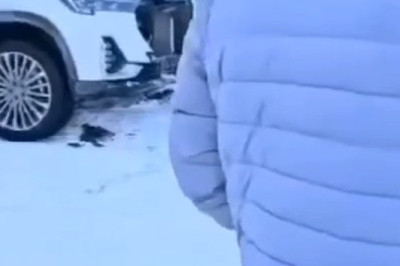Do not touch the “lost” chick if you find it on the ground in the spring
Have you noticed a downy miracle sitting on a stump and sleepily batting its eyes? The chick is alone, and it seems absolutely defenseless to you? You shouldn’t immediately do him good and do him justice. These birds DO NOT need help!
These chicks don't need help!

Birds are very peculiar companions. Most birds in our region have such a stage in development - the age of fledgling. It differs in that the chicks do not wait until they can fully fly but crawl out of the nest much earlier. Their feathers are not yet fully formed, the fluff sticks out from all the cracks, and the tail is not visible at all! But they themselves are already strong, they stand confidently on their paws, and their eyesight is fine!
Want to ask why I'm so sad? But because they haven’t brought me food for five whole minutes!

How do such yellowthroats survive if they are not fully formed? On your own - no way. Their parents look after them. They find their children by their voice. No one forgets about the baby - he is fed regularly until he learns to get food on his own. If you don’t see adult birds around, it doesn’t mean that they aren’t there. They just hid: they are waiting for you to leave as soon as possible.
When I came to visit my grandmother for a week.
Surprisingly, the tactic of releasing half-ready chicks from the nest increases the survival rate of the entire brood! Outside the nest, the babies scatter in all directions. If a predator attacks, only one chick will suffer, and not all.

I hope this big two-legged predator doesn't eat me if I'm pretending to be a stone.
Therefore, gentlemen, let's turn on our attentiveness! If you see that the chick you meet already has large flight feathers on its wings, it sits steadily, runs confidently, or even flits around - don’t run to save it! Don't be fooled by the chick's fluff, yellow mouth, and short tail, he's doing fine, he doesn't need any help!

When you grew up before everyone else in your class.
If you unknowingly dragged one of these home, quickly return it back! Within 24 hours, the fledgling's parents will definitely be close to the place where you took it from, and the bird child will return to the family without incident. Do not worry. The smell of humans does not bother the feathered parents. Birds have a very poor sense of smell - they will not smell foreign odors.

Fledglings may look like sick individuals. But not because there is something wrong with them, but because their feathers are actively changing from a child’s to an adult’s.
It’s a completely different matter if you notice blood on the fledgling or visible damage to the wing or leg. This kid could really use some help! But don’t rush to cause it yourself. Contact your nearest wildlife rehabilitation center, and they will advise you on what steps to take next.

But such crumbs will not survive without human help.
Who else needs help is younger victims. Unlike fledglings, they have a weak body, their legs do not support them, there are no adult feathers at all, sometimes they are still half-naked and blind. If such a baby is outside the nest, it needs to be rescued. The rehabilitation center specialists will also help you with this.



























Comments
0 comment